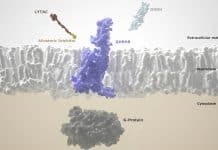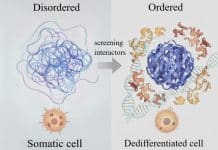 The distribution of Electric Power (EP) is in an evolving revolution as production is transformed from aggregated into scattered schemes. Those who were once simple consumers today can also be EP producers (prosumers). This revolution is due to the use of Information and Communication Technologies (ICTs) creating smart EP networks (smart-grids) which improve the reliability, efficiency and economy of the electric power market. However, the new EP distribution landscape, creates a number of problems such as imbalance between supply and demand, voltage instability and supply disruption, whereas especially important are the impacts on the introduction of Renewable Energy Sources (RES), where Volt / VAr performance and voltage stability are negatively affected.
The distribution of Electric Power (EP) is in an evolving revolution as production is transformed from aggregated into scattered schemes. Those who were once simple consumers today can also be EP producers (prosumers). This revolution is due to the use of Information and Communication Technologies (ICTs) creating smart EP networks (smart-grids) which improve the reliability, efficiency and economy of the electric power market. However, the new EP distribution landscape, creates a number of problems such as imbalance between supply and demand, voltage instability and supply disruption, whereas especially important are the impacts on the introduction of Renewable Energy Sources (RES), where Volt / VAr performance and voltage stability are negatively affected.
The solution to address these problems comes through the innovative proposal of this project. Accordingly, this project aims at the development and introduction to the market of a Decision Making Support System (DMSS) in real time (iReact-NG) to achieve optimal  operation on EP distribution networks, performing parallel simulations of the smart-grid operational scenarios under consideration, merging historical data (past), current states and automation (present) and co-simulation services (future). The DMSS to be developed will make extensive use of computational intelligence methods for modeling as well as optimizing the network.
operation on EP distribution networks, performing parallel simulations of the smart-grid operational scenarios under consideration, merging historical data (past), current states and automation (present) and co-simulation services (future). The DMSS to be developed will make extensive use of computational intelligence methods for modeling as well as optimizing the network.
The targets of the proposed research are as follows:
- Produce reliable short-term predictions of the behavior of a smart-grid using cooperative simulation and machine learning methods
- Exploit the forecasts for optimal management of the resources
- Development of a smart-grid simulation workshop for studying optimization approaches for load balancing, Volt / VAr control, scheduling of scattered RES
- Generate new knowledge
- Improve the competitiveness of the business
- Create new jobs
- Achieve energy efficiency through additional optimization in heat loss reduction and capacity release, reduction of operating and maintenance costs, and increase of RES penetration
Project title “iReact – Next Generation”
Cooperating entities:
The project comprises 2 partners, namely:
- Laboratory of Telecommunications, Signal Processing and Intelligent Systems
Department of Electrical and Electronic Engineering, School of Engineering, University of West Attica.
- EMTech Space (Coordinator)
Source :
This research is being co‐financed by the European Union and Greek national funds through the Operational Program Competitiveness, Entrepreneurship and Innovation, under the call RESEARCH – CREATE – INNOVATE (project code: T1EDK-00244).
Funding amount:
Total budget: 461.460,00€
Budget for UNIWA: 163.960,85€
Duration: 01/11/2018 – 30/04/2021
Principal Investigator for UNIWA: Dr. Alex Alexandridis, Professor, Department of Electrical and Electronics Engineering, University of West Attica, Office: A115, Campus 2, Office Telephone Number: 2105381571, Lab: A109b, Campus 2, Lap Telephone Number: 2105381336, E-mail: alexx@uniwa.gr
Website: users.uniwa.gr/alexx
Principal Investigator for EMTech and the project: Nikolaos-Antonios Livanos,, Managing Director, EMTech Space P.C.
32 Korinthou & S. Davaki St., 14451, Metamorphosi, Tel. 2106528527
E-mail: nikolaos.livanos@emtech.global
Website: emtech.global/
Key publications
- Alexandridis, A., E. Chondrodima, N. Giannopoulos, H. Sarimveis, “A Fast and Efficient Method for Training Categorical Radial Basis Function Networks”, IEEE Transactions on Neural Networks and Learning Systems, 28(11) (2017), pp. 2831 – 2836.
- Alexandridis, A., E. Chondrodima, H. Sarimveis, “Cooperative learning for radial basis function networks using particle swarm optimization”, Applied Soft Computing, 49 (2016), pp. 485-497.
- Alexandridis, A., E. Chondrodima, H. Sarimveis, “Radial Basis Function network training using a non-symmetric partition of the input space and Particle Swarm Optimization”, IEEE Transactions on Neural Networks and Learning Systems, 24 (2013), pp. 219-230.












